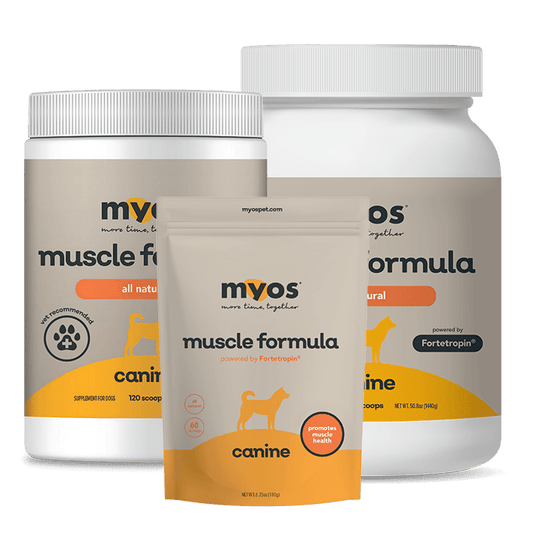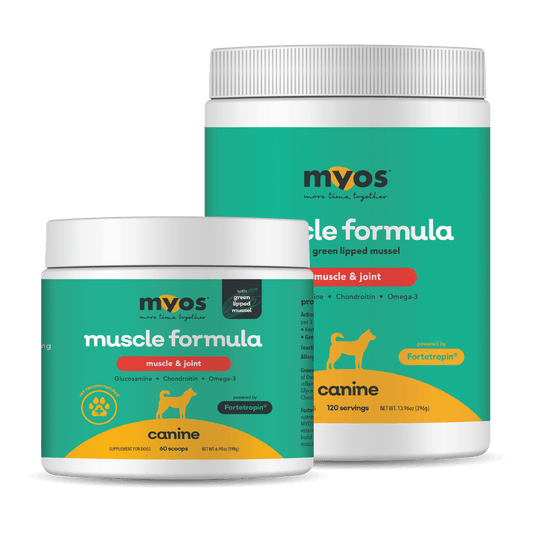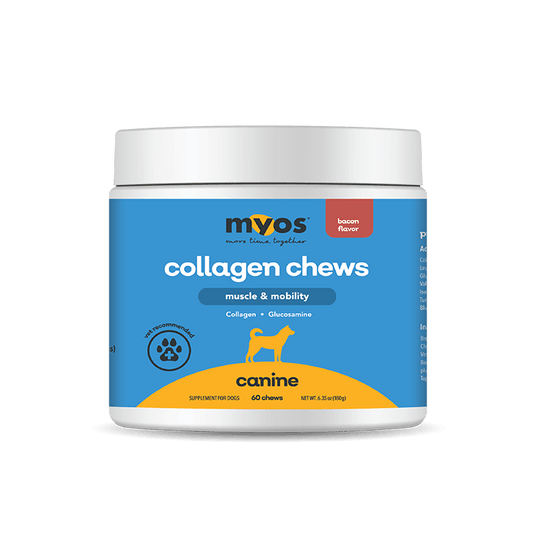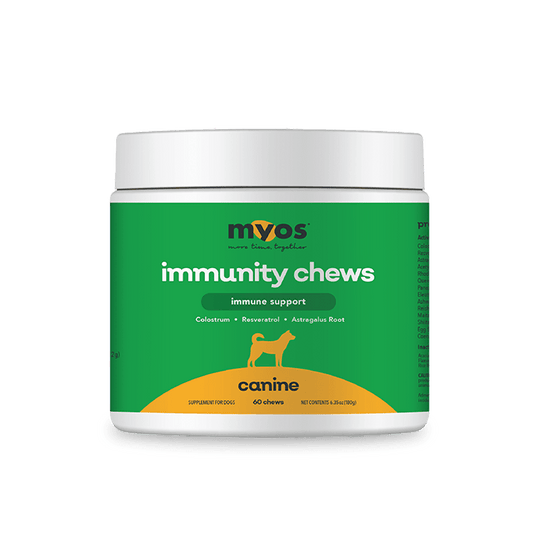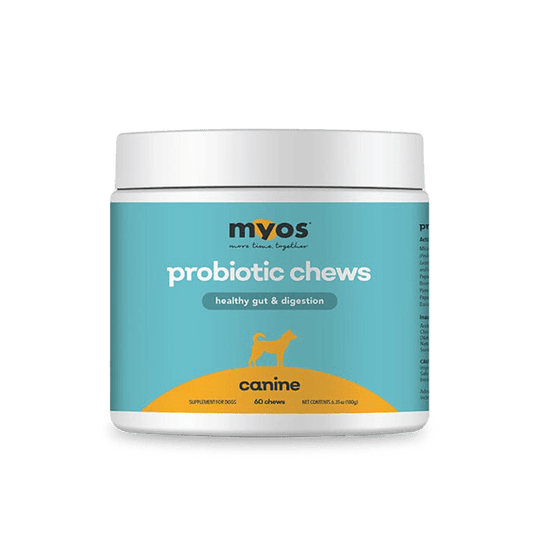
Preventative Care to Maintain Your Dog’s Muscle Health
From the time your dog is a puppy, exercise and proper nutrition are among the most common ways to maintain muscle mass and strength and prevent issues such as muscular atrophy as they age. Being proactive with your pet’s muscle health can help them live a longer, healthier, happier life.
Here are 6 tips to help you stay on top of your dog’s muscle health.
Exercise
Dogs need daily activity for both their physical and mental health, and that exercise doesn’t require high-endurance jogs or 10-mile hikes. It can be something as simple as a 15-to-20-minute walk per day or a game of fetch to build strength and flexibility. It’s also been proven that a well-exercised dog is a better-behaved dog.
Rest
Without proper rest, your dog’s muscles can’t recover. In fact, muscle injuries can be caused by over-exhaustion and overwork.
It’s important to give your dog’s muscles a chance to rest after exercise so that you don’t accidentally push them to the breaking point. For instance, if you have a particularly active dog that you regularly take on long walks, give them a day of relaxation now and then.
Proper Nutrition
Buy safe, health-promoting dog food, prepare homemade dog food meals for your pet yourself, or use a combination of both. Pure proteins, such as beef, chicken, and fish, are great for building muscle in dogs. Healthy fats for dogs, such as coconut oil and fish oil, are a good addition to a dog’s diet as well, and they also help give your dog hydrated skin and a healthy coat. Dark, leafy greens are another wonderful resource as a dog's body craves vitamins as much as it craves protein and fat from meat.
While most carbohydrates should be avoided, there are certain vegetables and fruits that have been scientifically proven to be good carbs and may help avoid muscle loss in dogs. Sweet potatoes and pumpkin puree are two examples of safe, nutritional carbs and fiber.
Essential Vitamins, Nutrients and Supplements
Omega-3 fatty acids and a range of antioxidants can be effective in keeping your dog’s muscles strong. While EPA/DHA essential fatty acids are saturated in fish, they also come in dog-friendly pills or fish oil.
It's best to feed them antioxidants through food, either your dog's kibble or natural veggies and fruits. For example, blueberries and raspberries are full of antioxidants and are safe and healthy for dogs.
In addition to exercise and proper nutrition practices, your veterinarian may also suggest MYOS Canine Muscle Formula®, an all-natural supplement, proven to support optimal muscle health and strength in dogs.
Watch for behavior changes.
Be watchful for any uncharacteristic behavior from your dog. Limping, having trouble getting upstairs or on furniture, or even having trouble standing up can all be indicators of musculoskeletal issues.
And that brings us to our final tip …
Routine check-ups
Since dogs are unable to verbally communicate with us, we need to pay attention to and acknowledge any changes in their behavior, routine, or gait. Even when your dog isn’t showing signs of pain or discomfort, routine visits to the veterinarian will ensure you are one step ahead of any potential health hazards. The minimum recommended amount of vet visits for a healthy dog is every six months.
Taking preventative measures for your dog’s health will help ensure that they’re by your side for many years to come.

